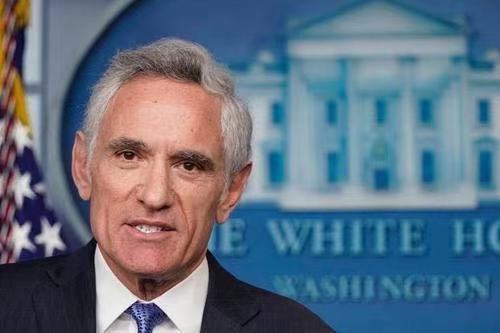
Scott Atlas turned in his resignation on Monday from his role as a special adviser to President Trump on the coronavirus, capping off a controversial tenure in which he gained considerable influence while pushing questionable approaches to combating the pandemic.
Atlas joined the administration in August as a special government employee, meaning he was eligible to serve a 130-day detail. His tenure was slated to expire this week, but he filed his resignation, effective Tuesday, a White House official confirmed on Monday evening.
“I worked hard with a singular focus—to save lives and help Americans through this pandemic,” Atlas wrote in his resignation letter.
“As time went on, like all scientists and health policy scholars, I learned new information and synthesized the latest data from around the world, all in an effort to provide you with the best information to serve the greater public good,” he wrote. “But, perhaps more than anything, my advice was always focused on minimizing all the harms from both the pandemic and the structural policies themselves, especially to the working class and the poor.”
Honored to have served @realDonaldTrump and the American people during these difficult times. pic.twitter.com/xT1hRoYBMh
— Scott W. Atlas (@ScottWAtlas) December 1, 2020
The exit was first reported by Fox News.
Atlas, who joined the administration after Trump noticed him during Fox News appearances, attracted controversy for his influence over the president’s thinking on the pandemic. He is not an infectious diseases expert, and he pushed the widely disputed herd immunity theory in which some argue that older, at-risk populations should be protected while younger, healthier people would be free of restrictions.
Several other members of the White House coronavirus task force raised concerns about Atlas or openly disputed his views.
Centers for Disease Control and Prevention (CDC) Director Robert Redfield was overheard ripping Atlas on a flight; White House coronavirus response coordinator Deborah Birx confronted Vice President Pence about Atlas’s increasing influence; and Anthony Fauci, the government’s top infectious diseases expert, said earlier this month he “totally” disagreed with Atlas’s views.
Atlas’s colleagues at the Hoover Institute at Stanford University also distanced themselves from the White House adviser earlier this month.
Trump has all but moved on from the pandemic response since losing the election to President-elect Joe Biden earlier this month. He has spoken periodically about progress on vaccine development, but has otherwise paid little public attention to rising infection rates, surging hospitalizations and mounting deaths from the virus. Millions of Americans contracted the coronavirus in November alone.
TRENDING: 7 Second Daily Ritual Melts Stubborn Fat While You Sleep
Via The Hill
